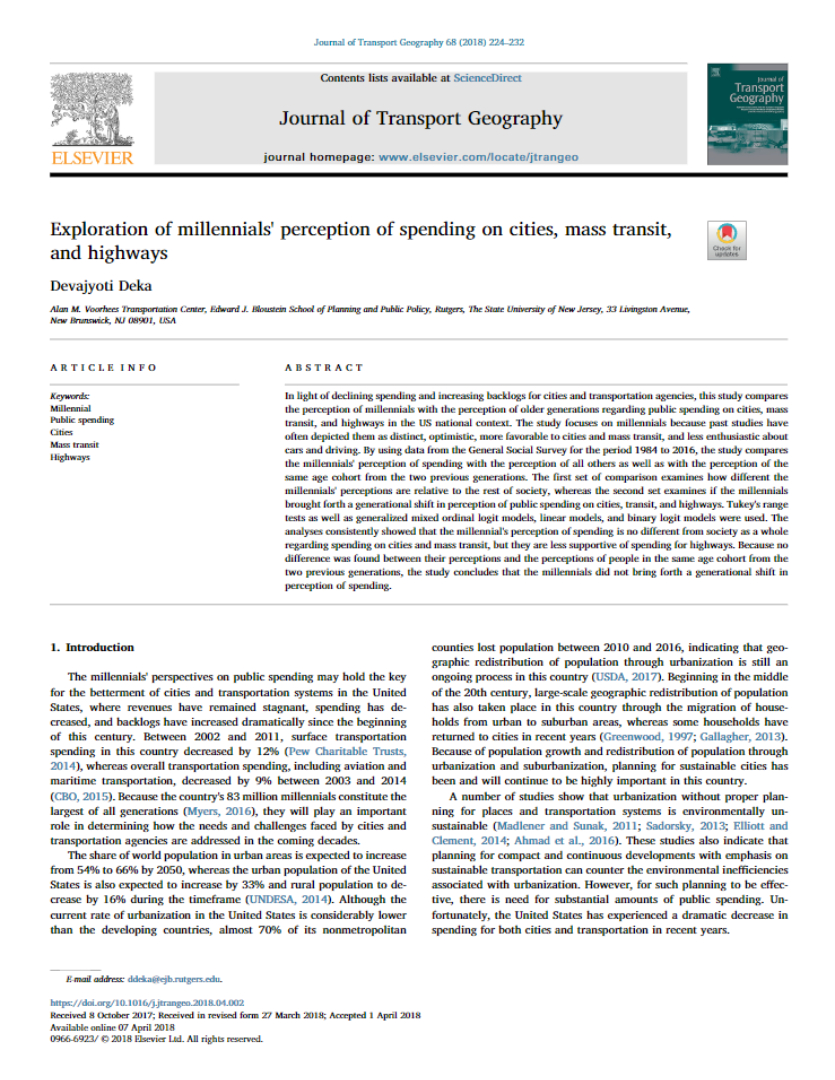Abstract
In light of declining spending and increasing backlogs for cities and transportation agencies, this study compares the perception of millennials with the perception of older generations regarding public spending on cities, mass transit, and highways in the US national context. The study focuses on millennials because past studies have often depicted them as distinct, optimistic, more favorable to cities and mass transit, and less enthusiastic about cars and driving. By using data from the General Social Survey for the period 1984 to 2016, the study compares the millennials’ perception of spending with the perception of all others as well as with the perception of the same age cohort from the two previous generations. The first set of comparison examines how different the millennials’ perceptions are relative to the rest of society, whereas the second set examines if the millennials brought forth a generational shift in perception of public spending on cities, transit, and highways. Tukey’s range tests as well as generalized mixed ordinal logit models, linear models, and binary logit models were used. The analyses consistently showed that the millennial’s perception of spending is no different from society as a whole regarding spending on cities and mass transit, but they are less supportive of spending for highways. Because no difference was found between their perceptions and the perceptions of people in the same age cohort from the two previous generations, the study concludes that the millennials did not bring forth a generational shift in perception of spending.
